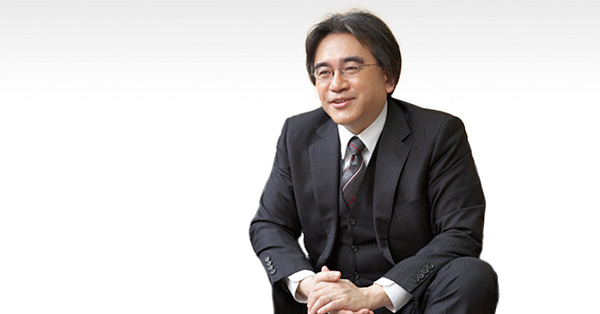Snapchat's Sector Selloff, Satoru Iwata, Nintendo, and Financial Independence
Happy Thursday and welcome to our new subscribers!
No matter how scary big downturns might seem, don’t try to time the market. The best returns come on random days smack dab in the middle of bear markets. If you miss out on those days because you’re waiting to invest at the “bottom”, your portfolio will never forgive you.
Remember: Time in the market beats timing the market.
Snapchat Tanks Digital Advertisers
Late on Monday, Snapchat dropped a bomb on the entire social media and digital advertising segment of the market. “The macroeconomic environment has deteriorated further and faster than anticipated,” the company admitted — along with the fact that it will likely miss the lower end of its revenue and earnings guidance for Q2 2022.
Guidance that was already conservative to begin with.
Not surprisingly, SNAP plummeted nearly 45% on Tuesday.
What makes this interesting isn’t so much what happened to Snapchat, but the effect it had on other (much more profitable) companies. Particularly these two:
Alphabet (Google): -7.5%
Meta Platforms (Facebook/Instagram): -9.8%
Elsewhere, Pinterest also dropped 27% and Twitter dipped 6%.
Pretty much everyone associated with digital advertising suffered on Tuesday. Why? Snapchat’s dire forecast got talk of a recession humming again — and that’s typically bad news for the cyclical advertising industry. When times get tough, advertisements are usually the first thing companies cut back. Sad face for SNAP and friends.
So, there’s some logic there — but sector-wide selloffs have never made much sense to me.
Of all the irrationalities that populate Wall Street, this one always leaves me scratching my head. Why are people so willing to apply the sins and struggles of one company to all of its competitors? Where else in life or business does this happen?
Even the most bearish investors must admit that the quality of Snapchat’s ad-related business is nothing like the powerhouses over at Alphabet and Meta. If TikTok were struggling with advertising revenue, perhaps there would be cause for alarm.
But Snapchat?
A mostly-forgotten also-ran knocked 7.5-10% off the price of Google and Facebook?
Utter tosh.
And, remember, this just happened with Netflix and its streaming rivals. Last month, when Netflix reported a subscriber loss for the first time in a decade, its shares dropped massively — but so, too, did Disney, Paramount, Warner Bros. Discovery, etc.
Well, if nothing else, these irrationalities create excellent buying opportunities.
I’m happy to profit off of them. I just don’t think I’ll ever understand them.
Satoru Iwata and Nintendo
Twenty years ago, Satoru Iwata was named president of Nintendo and masterminded one of the most successful periods in the gaming giant’s history. He took over at a particularly difficult time, with Sony’s PlayStation entrenched as market leader and deep-pocketed Microsoft moving in, too, with the Xbox.
Oh, and Iwata was just 42 years old.
Nintendo’s previous president, Hiroshi Yamauchi, had told Iwata that, “If Nintendo tries to fight, it’s gonna lose. Don’t waste your energy on fighting.” He meant that going toe-to-toe with Sony and Microsoft in a high-tech arms race would be a losing (and possibly bankrupting) battle for the much-smaller Nintendo.
Iwata took his predecessor’s advice to heart — and the resulting Nintendo DS and Wii systems showed that the company’s knack for ingenuity and innovation could more than bridge any technological gap.
Sailing in a blue ocean. Yamauchi’s wisdom echoed the “blue ocean” business strategy, wherein a company avoids the red (bloody) waters full of rivals heatedly fighting amongst themselves in favor of calmer sailing elsewhere.
Nintendo left Sony and Microsoft to slug it out with high-priced HD exclusives and loss-leading consoles. Iwata instead steered Nintendo in a different direction. Its family-friendly, “casual” games — which oftentimes sold better than the latest and greatest PlayStation/Xbox blockbuster — successfully earned Nintendo a niche all to itself.
Sacrificial leader. In the 2010s, though, mobile gaming on smartphones — along with the wildly-popular PlayStation 4 and Microsoft’s faddish Kinect motion sensor — threatened Nintendo’s hegemony. Almost overnight, that blue ocean turned a distinct shade of red.
Nintendo made a bad situation all the worse by fumbling the launch of 3DS and Wii U. With Nintendo losing money for the first time in forever, Iwata stepped up and cut his salary in half so that no other employees would lose their jobs. He similarly encouraged other high-ranking Nintendo execs to do the same.
Iwata’s story ends on a bittersweet note. He passed away in 2015, but not before laying the groundwork for Nintendo’s revival. Behind the scenes, Iwata spearheaded both the concept and execution of what would become Nintendo Switch — one of the best-selling video game consoles of all time.
A fitting sign-off from a one-of-a-kind leader.
Earlier this week, I posted a thread on Twitter with some of my favorite Iwata quotes (and lessons). He led a fascinating life and possessed a rare sense of empathy and understanding for both his employees and customers. Not to mention a quirky vision of what gaming could become in the future.
Give the thread a read and, if you enjoy it, please consider sharing.


Meme of the Week
Has a better case ever been made for investing your surplus money, building an income-generating portfolio, and achieving financial independence?
Investing makes you the boss.
If you enjoy my work, please hit the ❤️ below and share this post with anyone who might be interested (or on social media). Thank you!
Disclosure: This is not financial advice. I am not a financial advisor. Do your own research before making any investment decisions.




